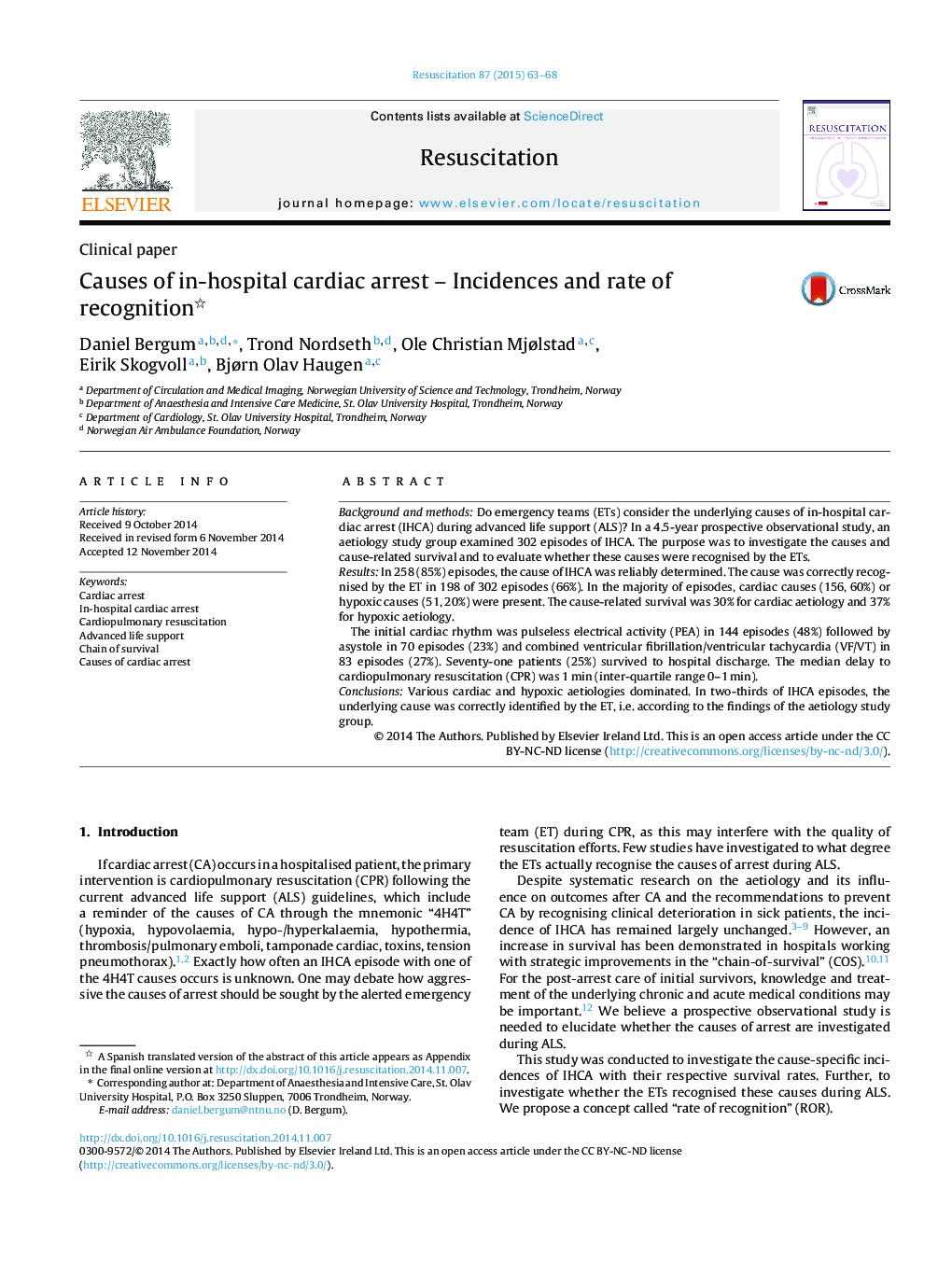| Article ID | Journal | Published Year | Pages | File Type |
|---|---|---|---|---|
| 5998030 | Resuscitation | 2015 | 6 Pages |
Background and methodsDo emergency teams (ETs) consider the underlying causes of in-hospital cardiac arrest (IHCA) during advanced life support (ALS)? In a 4.5-year prospective observational study, an aetiology study group examined 302 episodes of IHCA. The purpose was to investigate the causes and cause-related survival and to evaluate whether these causes were recognised by the ETs.ResultsIn 258 (85%) episodes, the cause of IHCA was reliably determined. The cause was correctly recognised by the ET in 198 of 302 episodes (66%). In the majority of episodes, cardiac causes (156, 60%) or hypoxic causes (51, 20%) were present. The cause-related survival was 30% for cardiac aetiology and 37% for hypoxic aetiology.The initial cardiac rhythm was pulseless electrical activity (PEA) in 144 episodes (48%) followed by asystole in 70 episodes (23%) and combined ventricular fibrillation/ventricular tachycardia (VF/VT) in 83 episodes (27%). Seventy-one patients (25%) survived to hospital discharge. The median delay to cardiopulmonary resuscitation (CPR) was 1Â min (inter-quartile range 0-1Â min).ConclusionsVarious cardiac and hypoxic aetiologies dominated. In two-thirds of IHCA episodes, the underlying cause was correctly identified by the ET, i.e. according to the findings of the aetiology study group.
